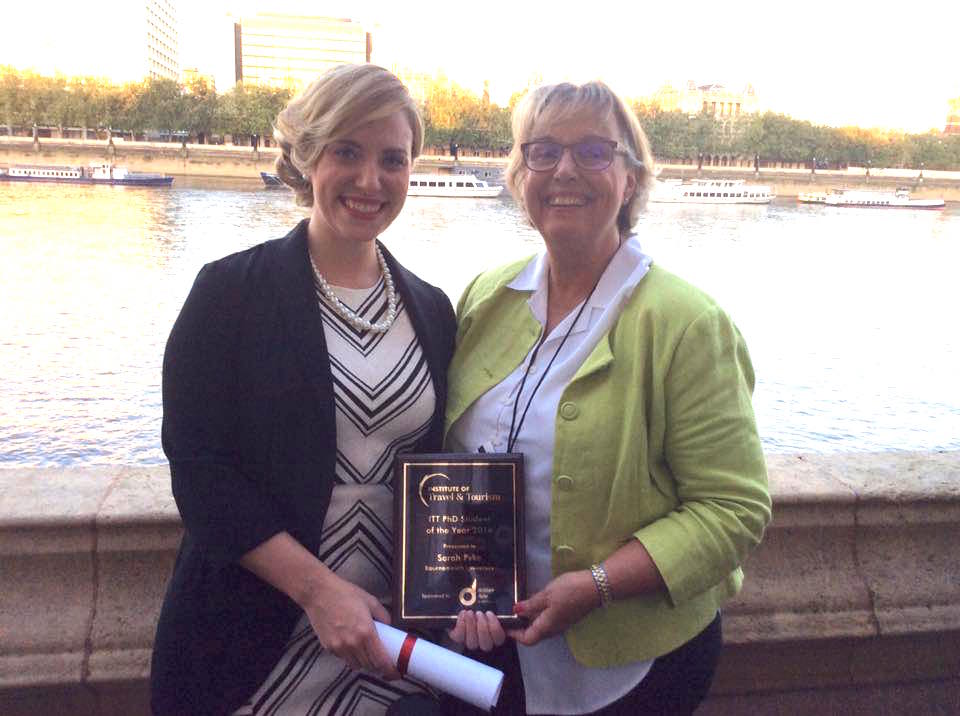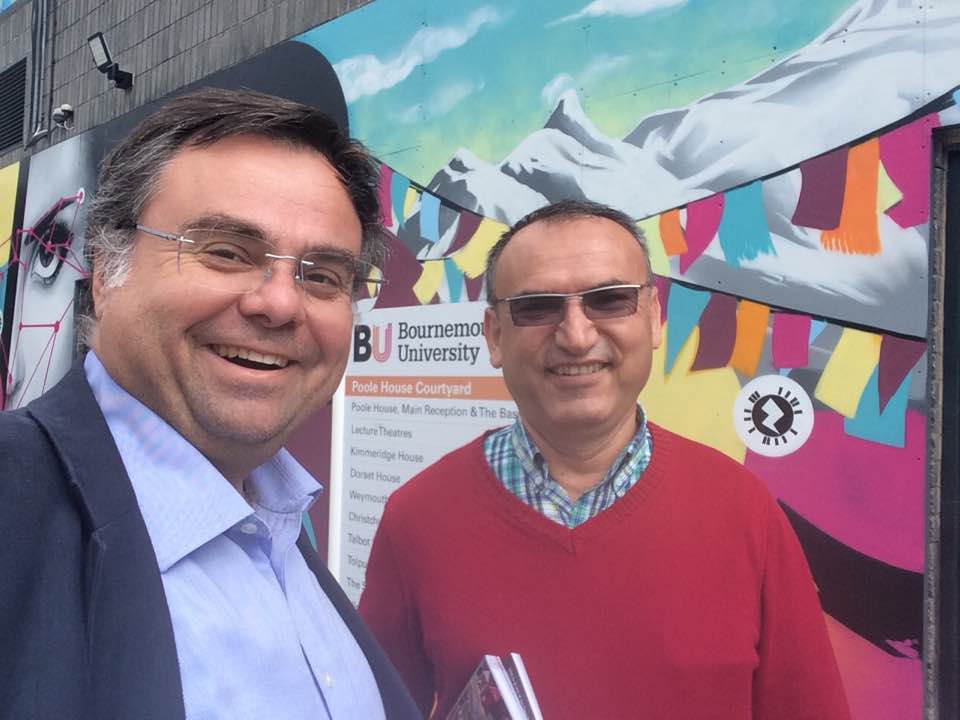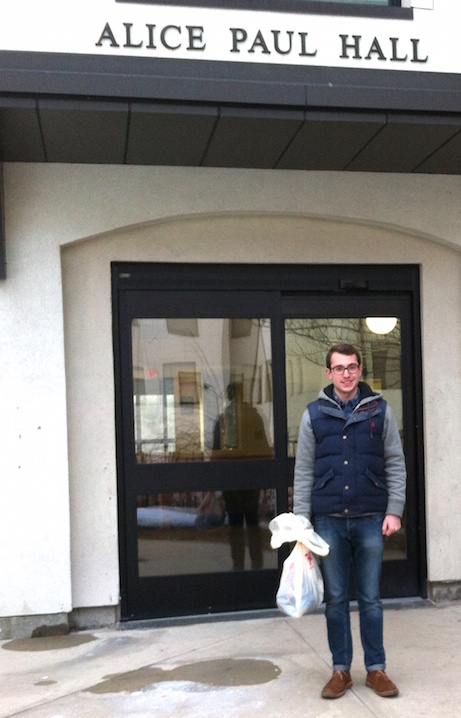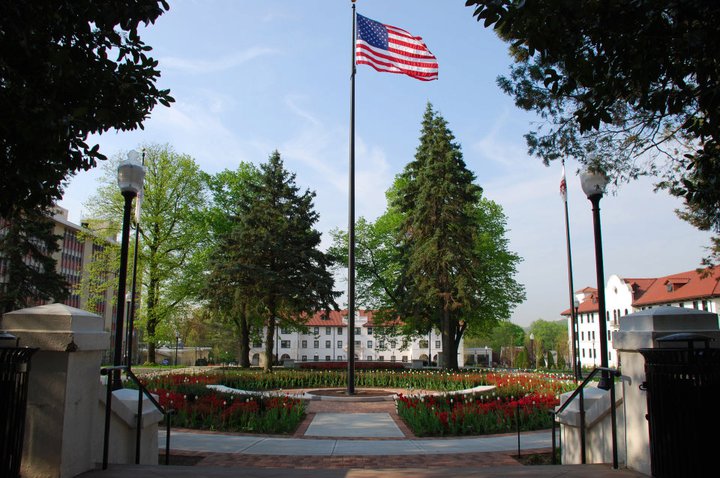John Carmichael Deputy Director National Coastal Tourism Academy (NCTA) is a Bournemouth University graduate : “I have had a long and varied career in tourism since graduating in 1994. Immediately after graduation, I was taken on by the English Tourist Board (the organisation with which I did my university placement year) to work on their national tourism awards and travel trade show. On leaving that role and travelling across the United States for a short period I then worked for the Heritage Lottery Fund assessing applications for funding. From there I moved into the area of visitor attraction sales & marketing working at The White Cliffs Experience (Dover) and LEGOLAND Windsor. I then moved out of the tourism industry for a period, taking on a corporate marketing role at Yellow Pages, developing sales materials and branding for the emerging Yell.com platform. The lure of tourism brought me back to the industry and I moved into destination management and marketing at VisitBath, (as Membership Manager, then Business Development Manager) and then onto VisitBrighton where I led the city’s destination marketing for over eight years.

I applied for my current role as Deputy Director National Coastal Tourism Academy (NCTA) after seeing an advert on a Tourism Alliance e-communication. Having completed the various selection procedures I was offered the role as Deputy Director of the National Coastal Tourism Academy (NCTA) in early 2016. The aims of the NCTA are to accelerate growth in the coastal visitor economy focussing on improving the visitor experience, supporting industry and bridging gaps in research for coastal tourism development. My role is to help deliver these aims through engagement with the coastal tourism communities around England and to guide the development of the Academy as we move into our next phase.
I am definitely still using the skills & knowledge gained from my degree in my current role; not least due to the fact that the NCTA is a partnership between Bournemouth Borough Council and Bournemouth University! Throughout my career I have applied my degree learnings to my job roles – having an understanding of tourism theory, the principles of marketing and the national framework for tourism have been particularly useful.
- Throughout my late teenage years I completed a BTEC National Diploma in Leisure Studies at my local college and tourism was a module within this course that I very much enjoyed. I had also gained some basic practical work experience in the tourism industry by working as a room attendant / tour guide at a National Trust property. As I wanted to progress my education in tourism, I looked for suitable courses and Bournemouth (Polytechnic as it was then) seemed to be the perfect place to study. Where better to study tourism than in a great tourism destination?! Going into the course I just wanted to increase my knowledge and understanding of the tourism business world, with the hope that it would lead me into a career than I enjoyed and found interesting. It soon became apparent that choosing Bournemouth as a place to study tourism was a wise move; several of my lecturers were clearly academic leaders in this industry having published papers and books on various aspects of tourism.
- My course was varied. In the early 1990’s there were very few places in the UK to study tourism so it was good to be part of something ‘unique’. The course itself covered several core disciplines including marketing, law, finance etc. but each of these were tailored to the tourism industry. In addition to these core disciplines were more specialist subjects embracing different aspects of tourism. The mix of the two was great. Like many others, going to university was the first time I had lived away from my family home. Living and studying by the sea provided something special that you simply couldn’t get inland. As a holiday destination Bournemouth provided everything you could want as a student; a friendly atmosphere, plenty of things to do and lots of places to eat, drink and dance!
My experience at Bournemouth University provided the ‘bedrock’ from which to build my career in tourism. Leaving university with a solid theoretical knowledge of tourism disciplines helped me greatly in my first jobs after my degree. I was fortunate enough to be given a job immediately after my graduation by the organisation at which I did my placement year, so the University provided my first ‘proper’ job too! Being from the Midlands studying in a town that had an amazing beach was very exciting! Bournemouth and Poole are towns that are great to get around by bike too, so I enjoyed exploring the area on two wheels. The countryside around Bournemouth is also beautiful and gave great opportunities to explore whether on foot, bike or by public transport. I enjoyed the seasonality in Bournemouth too, whilst there were never many really cold winters it was always good to feel spring in the air and know that summer days were on their way!
My degree is definitely relevant to my current job and has been relevant to many of my job roles throughout my career. Since graduation, I have now worked in the tourism industry for over 20 years and I still recognise the role my university studies played in my life. Particularly in the early stages of my career, having a tourism degree gave me a certain level of confidence in that I knew that I had a good knowledge to build upon. To me, the benefits of the course after graduating were holistic in nature. Having a mix of theoretical and practical knowledge (through my work placement year) provided me with ‘tools to work with’ in developing my career. It may be a cliché, but my years at Bournemouth University were probably the happiest of my life!
At university I participated in a number of sporting teams and developed new friendships outside of my course network as a result which made my university experience more rounded. Whilst studying for my degree I continued to work at a visitor attraction in the summer months and offered my support to the marketing department in my free time; this enabled me to put into practice some of the things I learnt on my course. In one sentence please sum up your experience of Bournemouth University. It may be a cliché, but my years at Bournemouth University were probably the happiest of my life! Have you gone on to do any further study since graduating from BU? Since graduating from Bournemouth University I have completed various professional marketing courses.
I would advice recent graduates to take the opportunity to gain experience in whatever way you can. Do not be deterred from taking a job in an organisation / industry area that you want to work in if it is a short-term contract or part-time position. As someone who has moved into senior management and involved in recruiting staff, I always look for those graduates who have taken the opportunity to gain experience in whatever way they can. When applying for a job take time to show how the knowledge and skills you have developed at university can help the organisation you are applying to. Be specific, open and honest; show your willingness to be flexible and continued desire to develop and learn.
 The aim of the 2016 WLO Congress was to explore “Challenges, Choices and Consequences” by creating a platform for professionals from diverse fields to interact, share and present a context for leisure services and opportunities. Speakers and delegates represented many countries, communities and academic fields. The benefits of leisure has been widely documented and the congress highlighted the importance of an integrated approach using leisure services to improve the human condition, transform spaces and boost the econ
The aim of the 2016 WLO Congress was to explore “Challenges, Choices and Consequences” by creating a platform for professionals from diverse fields to interact, share and present a context for leisure services and opportunities. Speakers and delegates represented many countries, communities and academic fields. The benefits of leisure has been widely documented and the congress highlighted the importance of an integrated approach using leisure services to improve the human condition, transform spaces and boost the econ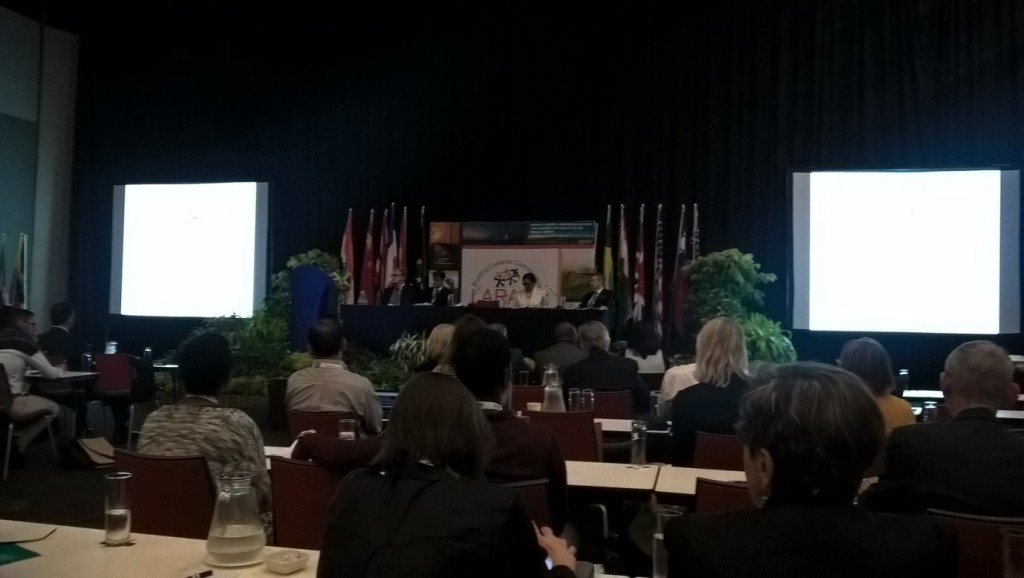 omy (www.larasa.org.za).
omy (www.larasa.org.za).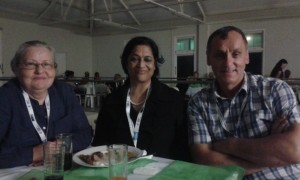 Another important part of the experience, was the interaction with the international field school (with students from South Africa, Canada, Brazil and The Netherlands) about the Green Hub Project in Inanda Dam. The project involved a range of cultural tourism and ecotourism products in the area. The field school students, hosted by the Durban Gr
Another important part of the experience, was the interaction with the international field school (with students from South Africa, Canada, Brazil and The Netherlands) about the Green Hub Project in Inanda Dam. The project involved a range of cultural tourism and ecotourism products in the area. The field school students, hosted by the Durban Gr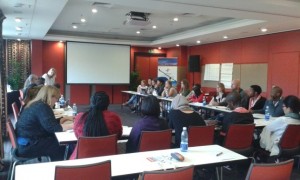 een Corridor (DGC), organization that offers adventure and eco tours along the uMngeni River Valley, presented their recommendation for the Inanda community development at the congress.
een Corridor (DGC), organization that offers adventure and eco tours along the uMngeni River Valley, presented their recommendation for the Inanda community development at the congress.